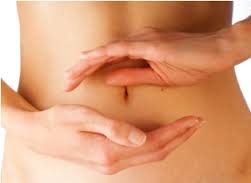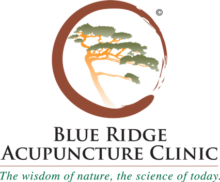IBS and Chinese Medicine
By Tai Lahans OMD
Irritable bowel syndrome is a gut motility disorder that involves the gastrointestinal tract and creates digestive symptoms, especially the lower gastrointestinal tract. It results in altered bowel habits, abdominal pain, and gas all in the absence of organic pathology.
IBS affects 1 in 7 people and accounts for 50% of all gastrointestinal outpatient referrals. It is the second most common cause of lost workdays. Twice as many women are afflicted with IBS than are men. The predominant age of onset of IBS is the late 20s.

Risk factors include other family members with IBS implying perhaps a familial syndrome of certain food allergies. Also a history of childhood sexual abuse or sexual or domestic abuse in women is considered a risk factor for IBS. These risk factors from conventional medicine are emblematic of the mind/body connection so elegantly explained in Chinese medicine. The organic nature of the emotions is part of the basic theory of Chinese medicine.
The differentiation of IBS, colitis, and Crohn’s disease is sometimes not clearly defined. The latest analysis of IBS within the parameters of conventional medicine has arrived at four different types of IBS, as differentiated from colitis and Crohn’s Disease.
The four types of IBS are:
- Alternating diarrhea and constipation
- Diarrhea predominant
- Constipation predominant
- Upper abdominal bloating and discomfort
No anatomical cause is known for IBS. It is believed that emotional factors, diet, pharmaceutical drugs, or hormones may aggravate a heightened sensitivity to gastrointestinal motility. The bowel appears to be hyperactive to ingestion of food, to intra-luminal gas, and to parasympathomimetic drugs.
Seen holistically, IBS is thought to be a disorder of synergistic nature that involves a series of triggers including food sensitivities, bowel flora imbalance, and emotional stress. Conventional medical providers treat IBS with spasmolytics, anxiolytics, and antidepressants. They see this disease as a psychosomatic disorder. However, treatment with psychotropic drugs produces very little improvement. No higher levels of anxiety have been found in patients with IBS than in those who suffer from other gut diseases causing similar symptoms.
The symptoms of IBS can include:
abdominal pain, dull aching discomfort in the left lower quadrant
abdominal pain and discomfort after meals
abdominal pain relieved by defecation and flatus
abdominal pain aggravated by coarse raw foods
abdominal pain aggravated by stress, anxiety, emotional lability
disturbed stools with altered frequency and/or constipation alternating with diarrhea
altered stool form
altered passage of stool with straining, urgency, incomplete evacuation
mucus in the stool
abdominal distention
distention after meals
sometimes dyspepsia, nausea, vomiting
IBS and Chinese medicine:
The spleen/pancreas-stomach system is the center of the body in that it is responsible for the nourishment of all qi and blood, supplying all of the organs and functions of the bodymind. On the emotional side, the spleen has to do with one’s ability to parent oneself and nourish oneself.
Women are at higher risk for IBS because the relationship of the spleen to the mother or earth. The absorption and transformation of nutrition, the production of blood ( menstruation and reproduction ), and care-giving, all predispose women to a greater risk for diseases of spleen deficiency. The bowel wall and the absorption that occurs across it is the spleen’s venue. Digestive symptoms that happen below the navel are attributed to the spleen. Symptoms that occur above the navel are considered due to a stomach disharmony.
The liver axis or realm of influence in Chinese medicine is also part of the pathology of IBS. IBS is not a term of Chinese medicine, but of western medicine, but “liver invading spleen” or “wood overacting on earth” is the internal pattern under which IBS is most commonly placed.
Another term for this pattern of abnormal qi flow is transverse rebellion, or afflux. A transverse rebellion is most often caused by emotional constraint or distress. The liver is especially susceptible to constraint or qi depression, and this knotting of emotions will cause physical symptoms. When the spleen/pancreas function is weak the knotted liver qi can invade or move transversely instead of in its normal direction. The spleen/pancreas is the most common recipient of this abnormal flow and the result is lower abdominal symptoms like interrupted stools, pain, and changes in stool.
When diagnosing IBS many different conditions or diseases have to be ruled out. In fact, IBS is often a diagnosis of exclusion. Those things that need to be ruled out include:
food allergies
celiac sprue
diverticulitis
lactose intolerance
parasites
colon cancer
pancreatic insufficiency
hypothyroidism
The key to diagnosis is effective history taking and the patient must be very accurate in giving this history and describing symptoms and when they occur. Diagnosis is based upon characteristic bowel patterns, time and character of pain, physical exam, routine diagnostic procedures that work to rule out other diseases.
Conventional medicine is not always successful in treating IBS. Anticholinergic agents, tranquilizers, and antidepressants are often used.
Natural medicine for IBS:
Natural and holistic treatment protocols include eliminating aggravating factors like sugar, caffeine, gluten ( wheat, oats, barley, rye ), and avoiding foods to which one is allergic ( usually wheat, corn, and milk ).
Healing the GI mucosa is part of the strategy of holistic treatment and Chinese medicine. Glutamine at 500mg daily, cabbage juice, and quercitin all help to heal the mucosal lining of the gut. There are Chinese herbal formulas that help in this process, as well, and eliminating those foods that cause inflammation or to which one has been found to be allergic is very important.
Some of the herbal formulas used include Tong Xie Yao Tang, Wen Pi Tang, Xiang Sha Liu Jun Zi Tang, or possibly Si Shen Tang. Each of these traditional formulas can be used in specific patterns that conventional medicine calls IBS.
It is important to be under the care of a practitioner of Chinese medicine so as to be treated for the specific pattern diagnosis in Chinese medicine. Acupuncture is especially helpful in reestablishing the proper qi flows in the abdomen. It can help treat the urgency and pain associated with IBS. When coupled with herbal medicine to treat the underlying deficiencies, acupuncture and the whole system of Chinese medicine is very successful in treating IBS.
Antispasmodics can be used prior to meals in order to inhibit GI smooth muscle action. Three common antispasmodics are: peppermint oil in enteric-coated caps, magnesium 200mg daily, and chamomile tea.
Increasing fiber with flax meal, psyllium powder, or fenugreek seed crushed and made into a mucilaginous tea also help to calm the bowel wall while healing is taking place. Powdered slippery elm bark is also very helpful, as are chia seeds.
If you would like to purchase any of these products you can call us at the clinic at 828-254-4405.
Decreasing stress through yoga, biofeedback, meditation, and inner work is a valuable means for learning to live within the body rather than from the head up. Stress reduction is a critical part of the IBS treatment plan. And learning to deeply love and care for ourselves is important.
When we are conscious of our bodies, we will be more attuned to what helps us and what is hindering our healing. This knowledge will assist us in changing our behavior or orientation in life to a way that works for us and supports our ability to truly nourish ourselves in every way.
Reach James Whittle M.S. L.Ac. Acupuncture in Asheville
Email: james@blueridgeclinic.com
Call : 828-254-4405 for a Free Consultation
